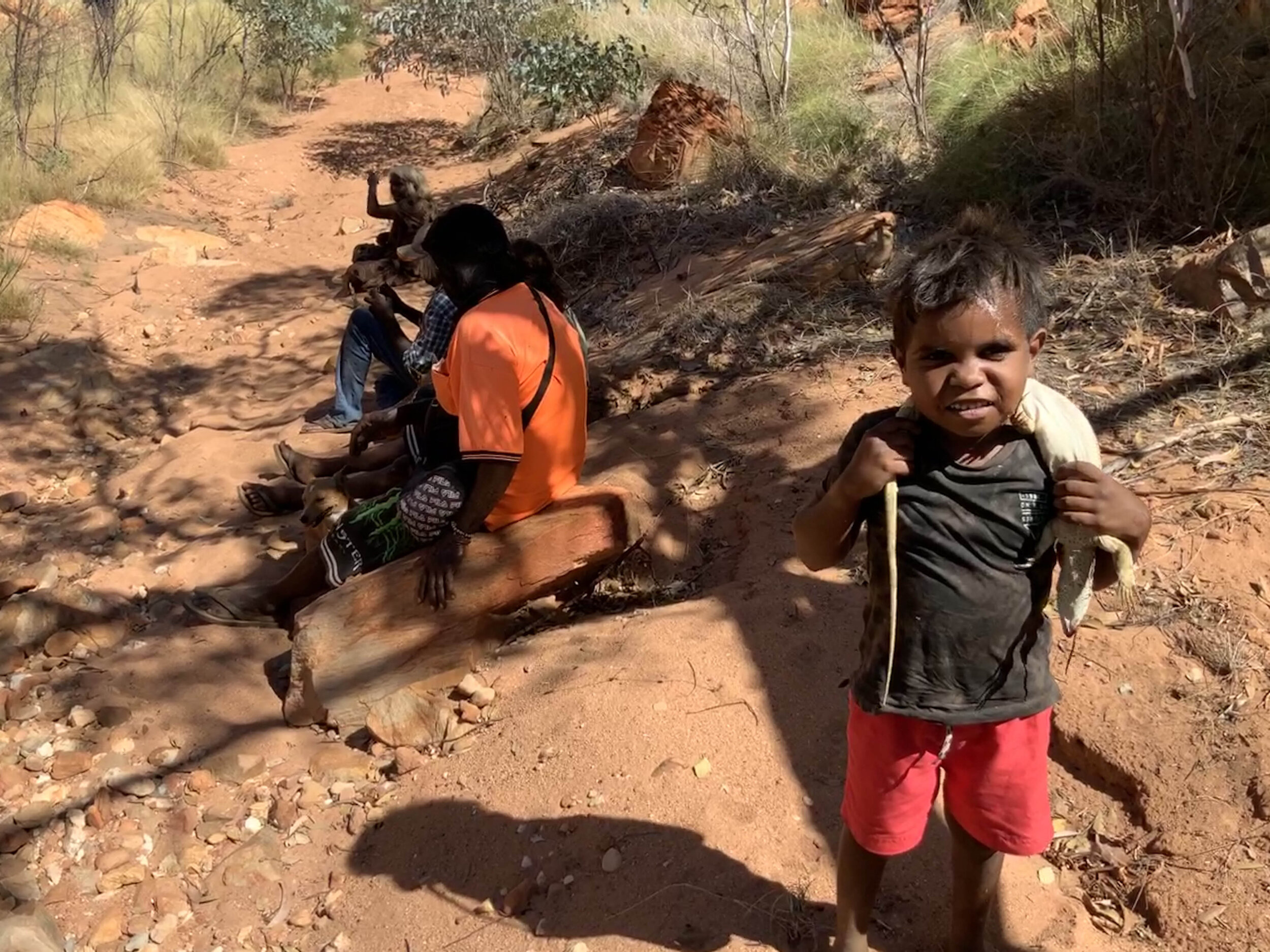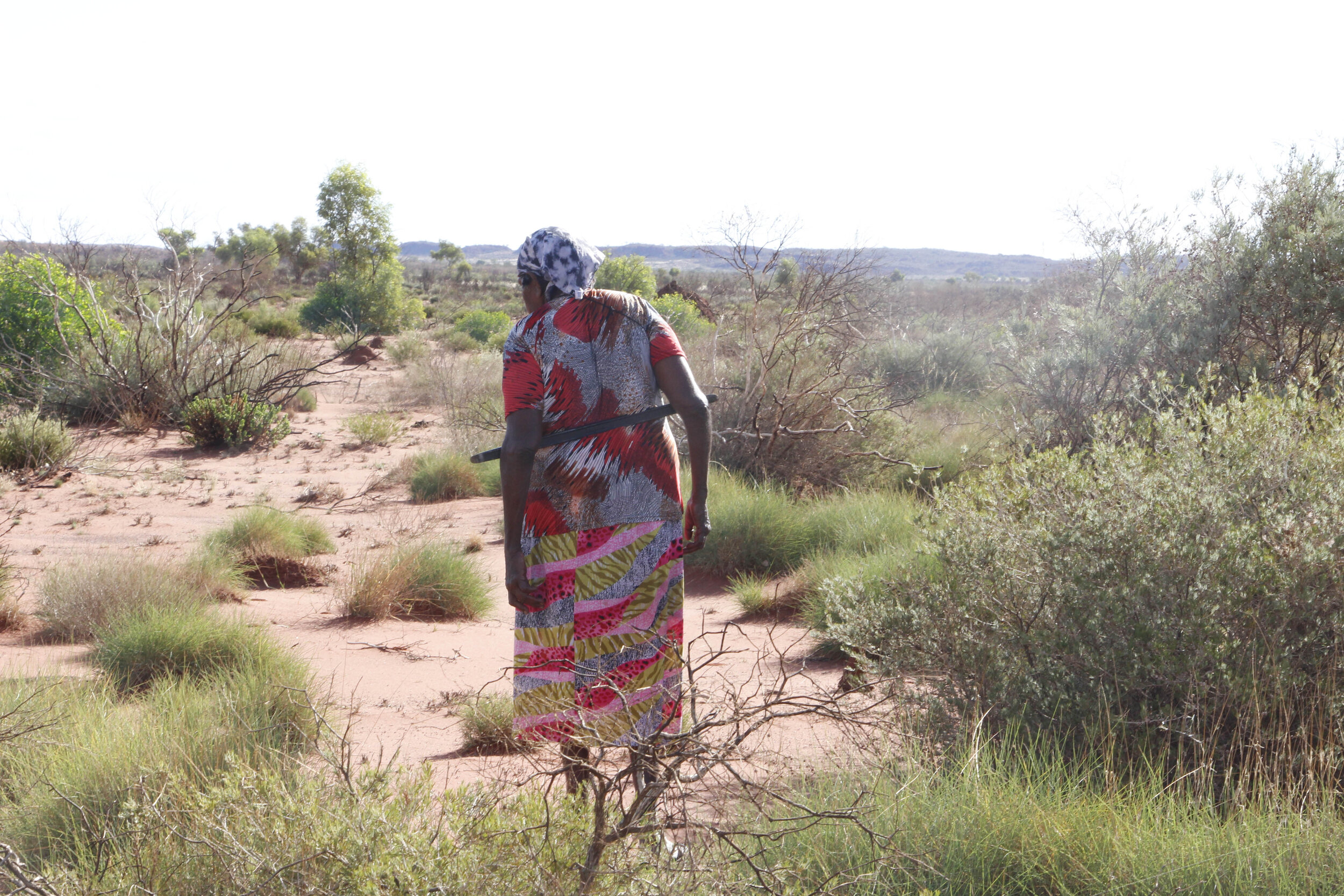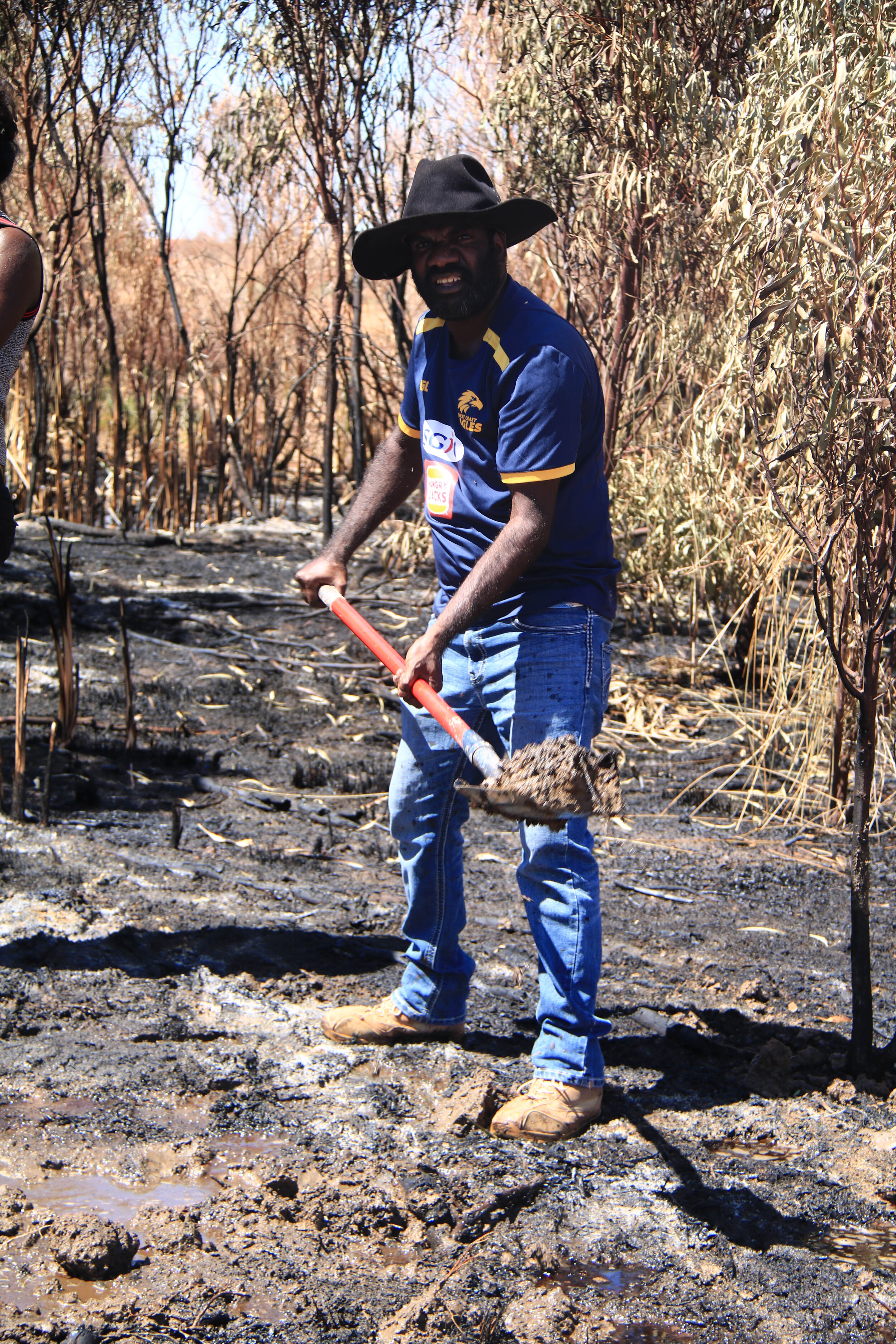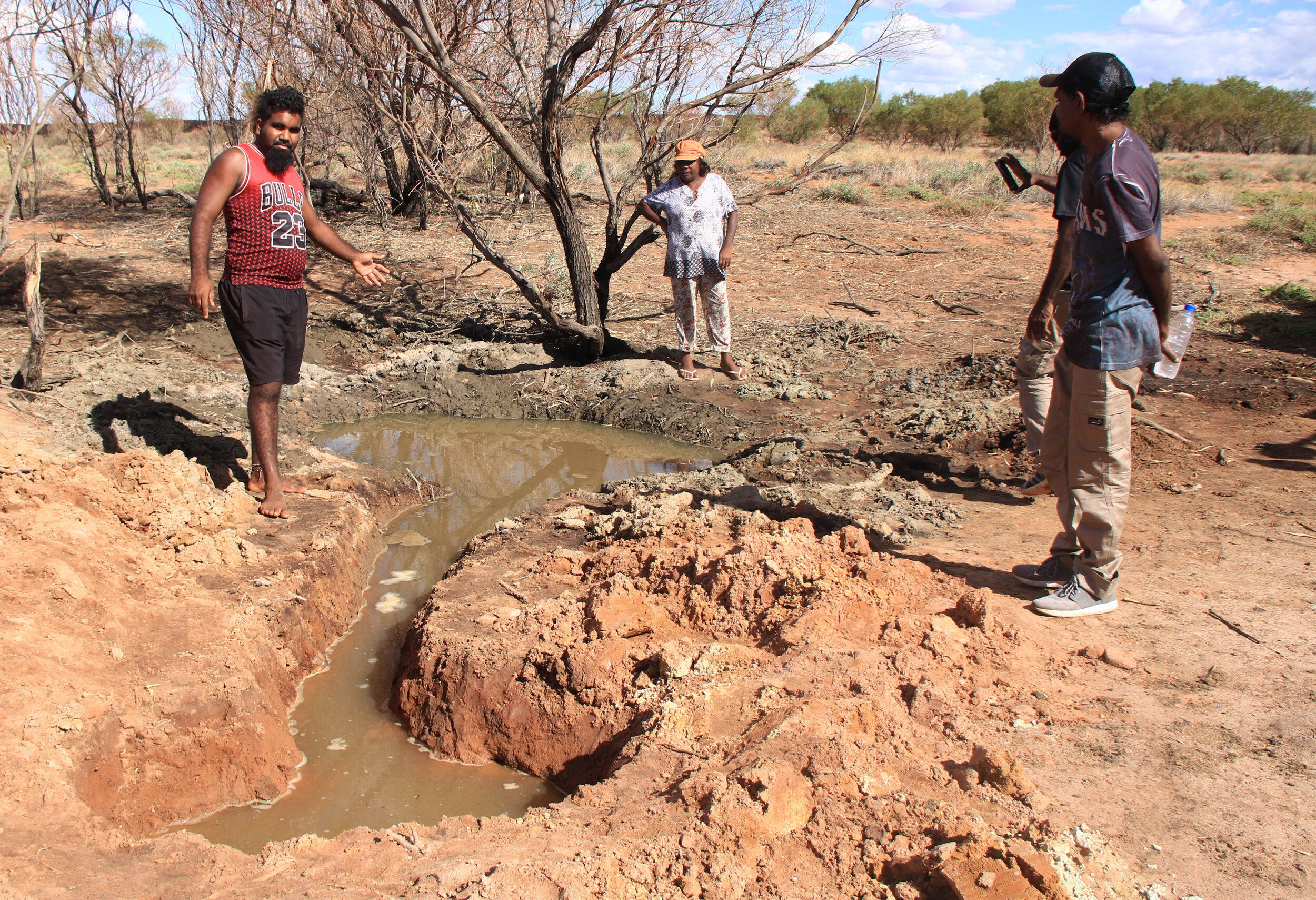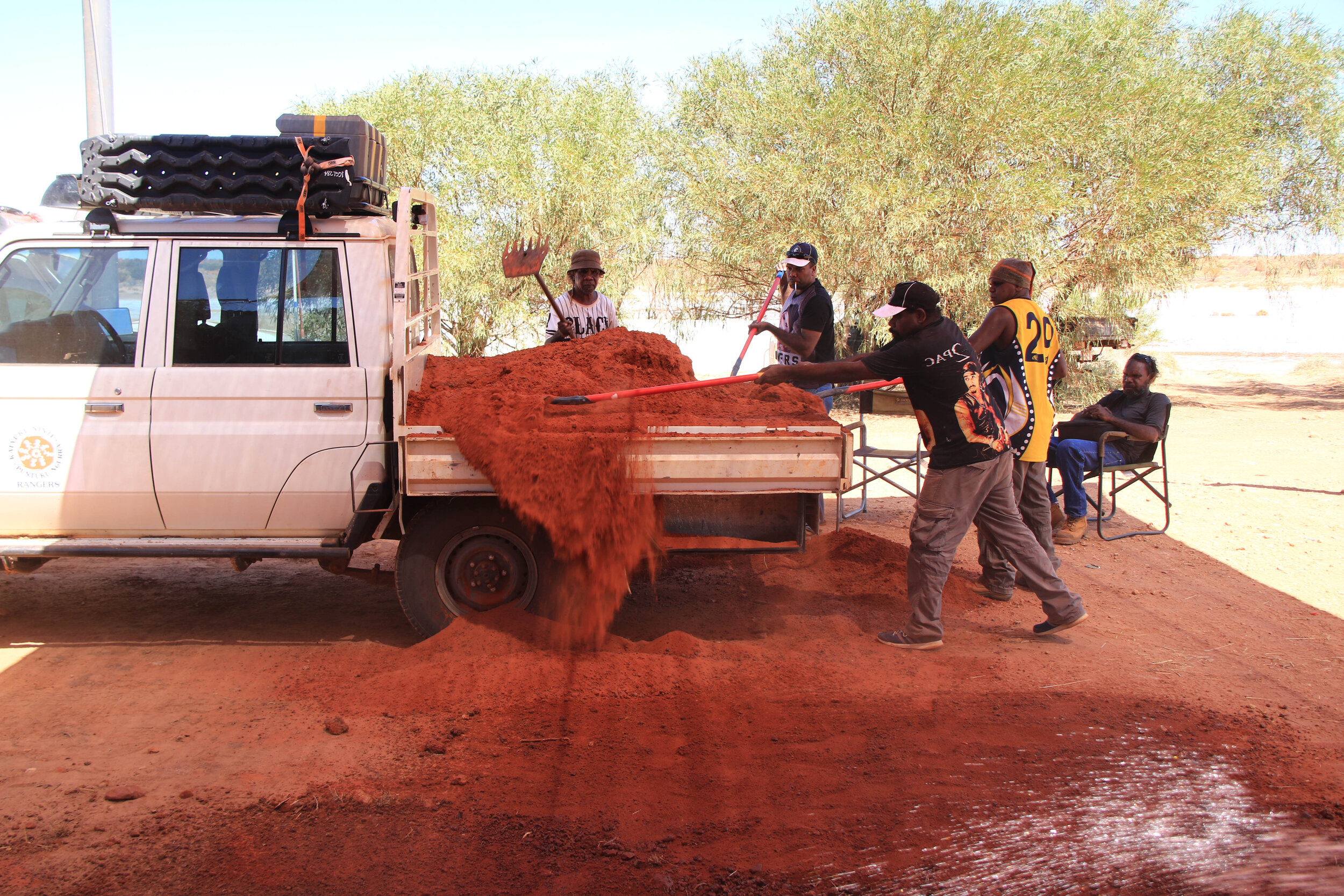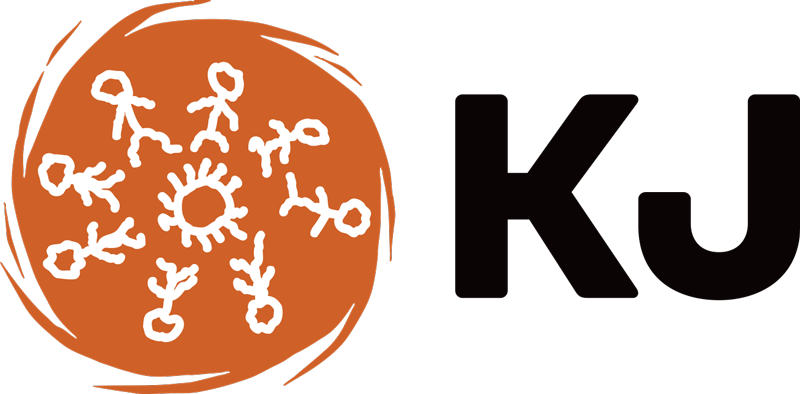No stopping KJ rangers from looking after country and culture during COVID-19
While the communities have been locking down due to the Coronavirus the rangers teams, while practising physical distancing, have been busy caring for country, looking after elders, engaging in cultural activities and giving their workspaces a touch-up.
Jigalong rangers
Despite a number of set backs — including COVID-19, travel restrictions, having no current ranger coordinator and limited supplies — the KJ Jigalong rangers are still keen to be working and to be out on-country.
Thanks to the help of Ryan who looks after the BHP Shed in Jigalong, the team have adapted their work program to suit the new conditions: working with the community to clean up people’s yards; collecting fire wood for the elders; and providing activities for youth.
Day trips to look after and reconnect families have occurred with regular visits to nearby water places. Overnight feral animal management trips have also taken place.
The rangers have also been supporting Wama Wangka (talking about alcohol) activities and helping out Martumili who are currently unable to access the communities.
Although the situation remains hard, the team is committed to working and supporting their community through this time.
Parnngurr rangers
Life in Parnngurr has been as busy as usual over the last couple of months. When the community first went into lockdown, the rangers have spent time cleaning up around community with a focus on tidying up elders’ houses. There were a few short trips to collect bush medicine and firewood — giving the elders a head-start for the winter season coming up.
In April, the team resumed more of their regular work getting back out on-country with some overnight trips. The team went on a two-night trip to the north to Kalkan Kalkan, with several elders joining. Having elders on a trip is always a very valuable experience and important for the rangers. These elders walked these areas in pujiman times, and were able to give stories about the waterhole where we camped for the first night, making this a rich cultural interchange between old and young.
Another highlight of the trip was Waka’s great grandson spotting a parnajarrpa (sand goanna) from the car on a tree stump and Waka hunting it for him. Undeniably, he was very proud of the catch. It was a pleasure to see a hunter in the making with a keen eye, and another hugely significant exchange between an elder and great-grandson!
The community is very grateful the rangers are still able to engage in this meaningful work. Elders Kumpaya Girgiba and Thelma Judson have said “it has been good that ranger coordinators MG and Piwi (Joy) have stayed in community so KJ can continue to work with the rangers: to keep Martu’s work going and also to keep everyone busy.”
Punmu rangers
Despite the heat still lingering there (days are beginning to get below 40 degrees) the rangers have been continuing their conservation work with mulyamiji (great desert skink). The rangers collected camera traps that had been placed at the start of summer 2019, and conducted a survey of a new area to find more active mulyamiji burrows. It is hot work and requires walking a long way in the sun. It was all worth it, however, when the rangers found several new burrows!
Luckily, Punmu community is surrounded by several freshwater springs and soaks which need regular cleaning and clearing to keep the freshwater rising to the surface: perfect work for hot days. This freshwater not only supports native wildlife, but the sites themselves are incredibly significant cultural sites for Martu, so keeping them healthy is an important part of caring for country. The rangers have been cleaning out waterholes in the area around Punmu so they can be enjoyed by the whole community.
During these challenging times, the rangers have also taken the opportunity to give the Punmu Ranger Station — aka “The Lakehouse” — a bit of a makeover. The last of these little enhancements occurred after one of the rangers spent his Sunday making earth ramps up into the station. When everyone came to work on Monday, it was decided that we should bring a lot of fresh earth to level the area in front of The Lakehouse to make it easier for packing and for older people to be able to step up into the station more easily. It took a team of rangers, a few Toyotas and a several trips to the local quarry, but after a couple of days, it was looking like a professional landscaper had paid a visit.
Since COVID-19, the community has taken up some extra work to make sure the elders are cared for and keep Punmu safe. The rangers have put their hands up to assist in some of the activities such as firewood collection, bin runs and road patrols. They feel proud and safe here in Punmu, caring for their country and their community.
A couple of the rangers had something to say about the current situation and their perspective on having the ranger program in Punmu:
“It would be a big problem (if the ranger program wasn’t running during this pandemic).” – Michelle Thomas, ranger.
“It’s important because…we get worried, and being a ranger helps…so we don’t get stressed about coronavirus.” – Dean Brooks, ranger.
Kunawarritji rangers
The Kunawarritji rangers said goodbye to the long-serving coordinator “Cluggo” at the start of the COVID-19 lockdown, leaving them without someone to assist in the facilitation of their ranger work.
This did not stop the team as they worked their way around a few obstacles to get themselves to work. The team scheduled day trips out from the community three days each week, sharing work out amongst community members to make sure everyone got a chance.
The trips focused on nearby water sources where the rangers shared knowledge and ensured the water source was clean.
The trips are an important activity for the community while it is in lockdown with all trips into other communities and town are on hold.
